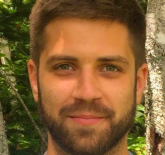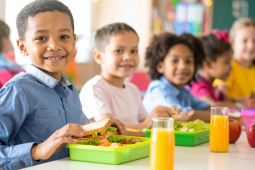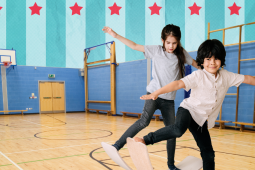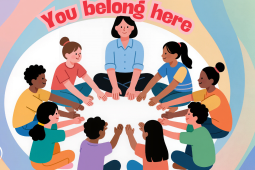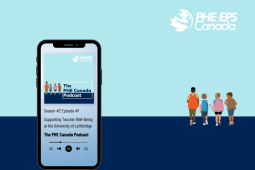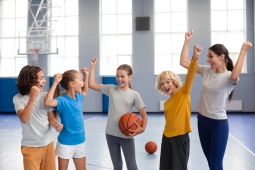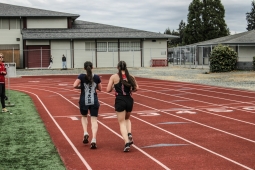Peer Review: Impacts of the 2018 Newfoundland and Labrador Winter Games on youth who participated in the sport of Olympic Wrestling with Team Indigenous
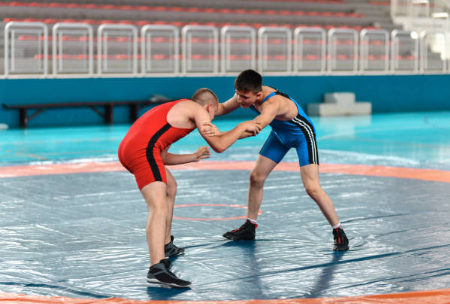
Previously published in Volume 84, Issue 2
Abstract
The 2018 Newfoundland and Labrador Winter Games held in Deer Lake, Newfoundland and Labrador (NL) were the first provincial games in Canada to have Team Indigenous as a region. This team gave Indigenous youth who otherwise may not have been able to attend the games the chance to participate and compete for their cultural home. Previous research has suggested that participation may lead to increases in overall wellbeing as multi-sport events have been shown to increase a sense of community, identity, and can lead to increases in mental health. This study's objective was to determine if youth who participated in the sport of wrestling at the 2018 NL Winter Games with Team Indigenous saw increases in their overall wellbeing, motivation to seek higher education, and levels of sport participation.
Summary
The 2018 Newfoundland and Labrador Winter Games held in Deer Lake, Newfoundland and Labrador (NL) were the first provincial games in Canada to have Team Indigenous as a region. This team gave Indigenous youth who otherwise may not have been able to attend the games the chance to participate and compete for their cultural home. Previous research has suggested that participation may lead to increases in overall wellbeing as multisport events have been shown to increase a sense of community, identity, and can lead to increases in mental health.
Objective: The objective of this study was to determine if youth who participated in the sport of wrestling at the 2018 NL Winter Games with Team Indigenous saw increases in their overall wellbeing, motivation to seek higher education, and levels of sport participation.
Methods: Seven Indigenous youth ages 12-18 years of age took part in the 2018 NL Winter Games with Team Indigenous in the sport of wrestling. Each participant completed a survey that measured sport participation, competitive sport participation, physical health, lifestyle choices, and self-worth/self-perception. Frequencies and percentages were calculated for categorical questions and mean, range, and standard deviation were calculated for continuous variables. Content analysis was used to look for themes in additional comments given.
Results: Participants indicated that the 2018 NL Winter Games had a positive impact on their self-perception, self-confidence, diet, activity levels, healthy choices, and motivation to want to attain higher education. They also indicated that sport has guided them towards making healthier life choices. Participants stated that they would stay active after the games were completed, however the games did not have an influence on these decisions.
Conclusion: Competing in multisport events can lead to increases in perceived wellbeing and motivation to attend higher education; however, more research examining participation in more sports and regions should be conducted.
Introduction
Indigenous youth in Canada suffer from lower levels of overall wellbeing than their non-Indigenous counterparts (Alaghehbandan, Gates, & Macdonald, 2005; Aldridge & St. John, 1991; Edwards et al., 2008; Gartrell, Jarvis, & Derksen, 1993; Kral, 2016; Kral, Idlout, Minore, Dyck, & Kirmayer, 2011; Tousignant, 2013). There are several reasons for this deficit in wellbeing among Indigenous youth, however; the majority have stemmed from the impacts of colonialism (removal of a peoples’ culture and forced assimilation) and residential schools (the way in which colonialism was carried out in Canada) (Loppie & Wein, 2009). These two factors have had long-lasting impacts on Indigenous wellbeing that has led to emotional trauma, lack of parental figures, family disruptions, lack of access to social support, and a loss of identity (Gartrell et al., 1993; Kral, 2016; Kral et al., 2011; Tousignant, 2013).
Research has shown that physical activity programs can help increase the physical and mental wellbeing of youth (Chimen et al., 2012; Desapriya, 2006; Larun, Nordheim, Ekeland, Hagen, & Heian 2006; Meyer & Gullotta, 2012; Oh, Yoshino, Rana, Lee, & Hovatter, 2015; Smith, 2012). These programs involve the use of sport to help increase youth wellbeing, and they are being implemented around the world. Specifically, some are being implemented in Canadian Indigenous communities to increase Indigenous youth wellbeing by mitigating several of the challenges that limit Indigenous youth physical activity (Silvey et al., In Press). Through both participation and competition, sports have been shown to increase both physical and mental wellbeing by developing a sense of community, reducing the risk of several diseases (e.g. osteoporosis, heart disease, type 2 diabetes), and increasing levels of self-confidence, motivation, and positive thinking (Chimen et al., 2012; Larun et al., Oh et al., 2015; Reverdito, et al., 2017). Competing in sports can instill a sense of common identity, belonging, and pride in an individual’s nation (Calloway, 2004).
The Newfoundland and Labrador (NL) Winter Games were recently held during the month of March 2018 in Deer Lake, Newfoundland, Canada. This multisport competition was held over one week and consisted of volleyball, table tennis, badminton, skiing, curling, gymnastics, hockey, basketball, skating, and wrestling. The tournament was designed to create participation in sport, foster sportsmanship and develop the athletic skills of youth living in Newfoundland and Labrador. The 2018 NL Winter Games was the first of any winter games held in Canada to provide opportunities for athletes to compete under the banner of Team Indigenous. Team Indigenous was comprised entirely of Indigenous youth from across the province and from three different nations; Innu, Inuit, and Mi’kmaq.
Several Indigenous youth who took part in a wrestling program offered by Silvey et al.’s (In Press) in a rural Indigenous community in Newfoundland qualified to compete in the 2018 NL Winter Games with Team Indigenous. These youth competed in wrestling at the games, stayed in the athlete’s village, and participated in the closing ceremonies. The Team Indigenous wrestling team placed third overall at the games and many of the youth placed first in their individual weight classes.
The purpose of this study was to determine if the youth that participated in both Silvey et al.’s (In Press) wrestling program and qualified for the 2018 NL Winter Games had perceived improvements in their overall wellbeing as measured by self-esteem, diet, self-perception, life choices, and motivation towards higher education. This study also examined if participation in the games had an impact on the youth’s desire to continue their participation in sport (recreational and competitive). It as expected that participating with Team Indigenous in the games could instill a sense of belonging and connectedness, and result in healthier life choices.
Methods
Prior to starting the study, ethics approval was obtained from the Health Research Ethics Board, of Newfoundland and Labrador.
Participants
A total of seven youth of 12-18 years of age took part in the 2018 NL Winter Games under the Team Indigenous banner in the sport of wrestling. All seven (five male and two female) were of an Indigenous heritage: five youth were Innu and two youth were Mi’kmaq. None of the Indigenous youth on the wrestling team were Inuit or from Inuit communities. The youth were from either Newfoundland and Labrador and all of them lived on an Indigenous reserve.
Survey
The research process included a quantitative survey based upon the Aboriginal Sport Circle’s North American Indigenous Games 2014 Evaluation Report (2015) (Appendix 1). The research tool (both this one and the Aboriginal Sport Circle’s North American Indigenous Games 2014 Evaluation Report) posed questions to participants within five themed areas: sport participation, competitive sport participation, physical health, lifestyle choices, and self-worth/self-perception. Sport participation and competitive sport were examined to determine if youth would continue in sport in a recreational or competitive field after the games, and if participating in the 2018 NL Winter Games had any impact on their decision. In order to determine if the 2018 NL Winter Games or sport in general had an impact on the youth health, physical health and lifestyle choices were also examined. Lastly, the research tool contained questions that were developed to gain an understanding of how youth view themselves (self-worth/self-perception) and if the 2018 NL Winter Games had any impact on these thoughts.
For several of the questions, respondents were given the option to write additional comments pertaining to previously answered questions. On the final evening of the 2018 NL Winter Games all wrestling Team Indigenous participants were invited to complete a survey developed specifically for this study. All seven participants completed the survey during one-on-one sessions with the lead researcher. This gave participants an opportunity to vocalize their ideas rather than needing to write items down themselves. Field notes were completed in order to keep track of the participants’ comments.
Descriptive analyses were performed for each question. Frequencies and percentages were calculated for categorical questions and mean, range, and standard deviation were calculated for continuous variables (i.e., age).
The additional comments data were analyzed using a deductive qualitative analysis (content analysis) approach that allowed researchers to look for common themes among the responses (Vaismoradi, Turunen, & Bondas, 2013). Two authors (DS and AD) coded and categorized the data into the following five main categories: a) school effectiveness; b) self-perception/self-worth; c) healthier diets; d) use of drugs/alcohol/tobacco; and e) activity levels. Authors worked independently, however, they met regularly to review coding, discuss differences, and make decisions to ensure coding consistency.
Results
All respondents indicated that sport has made a positive difference in their life choices and has helped them avoid unhealthy life choices. All respondents also indicated that their personal life choices (healthy eating, avoidance of drugs and alcohol) differ from those of their friends that do not compete in sport. Four (57%) of respondents indicated that participating in the NL Winter Games made them feel different about themselves. Six (86%) of the respondents indicated that they changed their diet in order to participate in the NL Winter Games with four (67%) of those who changed their diets suggesting they will maintain these changes. These questions allowed for additional comments and the comments were used in the content analysis. Content analysis results with one example for each theme can be seen in Table 1.
Five (71%) of the respondents indicated that they are regularly active for more than 60 minutes per day while two (29%) indicated that they are active 20-59 minutes per day. All respondents self-indicated that they are likely to be physically active a minimum of three times per week following the 2018 NL Winter Games and that the games had a positive influence on this intent to be active.
Four (57%) of the respondents indicated that they believe that individuals in their hometown see them as a role model. Six (86%) of the respondents also indicated that being selected to attend the 2018 NL Winter Games had a positive influence on how others perceive them. All respondents indicated that participation in the 2018 NL Winter Games increased their confidence and six (86%) believed this confidence would help them immensely in the future.
All respondents indicated that they intend to continue participating in sport and competitive sport following the games. Six (86%) of the respondents indicated that participation in the 2018 NL Winter Games as part of Team Indigenous had a positive influence to continue to be involved in sport and competitive sport. However, five of these six also indicated they would likely have still come to this decision had they not attended the games.
When asked if respondents had travelled outside their region to compete in sports prior to the 2018 NL Winter Games, five (71%) of the respondents indicated they had. Four of these five indicated that they had left their region for the first time a few weeks before the 2018 NL Winter Games to compete in another wrestling tournament.
Discussion
The findings of this study suggest that participation in multisport competitions such as the 2018 NL Winter Games may lead to increases in overall wellbeing through increases in self-confidence, self-perception, and diet. This study also suggests that youth being physically active in recreational sport and competitive sport may lead towards healthier life choices. Lastly, the findings raise the question that competition at major multisport events may lead to increases in motivation towards higher education.
Calloway (2004) suggests that youth sport competitions have the potential to not only increase physical health, but also can lead to increases in community cohesion, confidence, and self-perception. This study provides evidence that is consistent with Calloway’s suggestion; many of the youth that participated in this study felt they had improvements in all three of the above traits. One respondent indicated that they felt different about themselves because they were “surrounded by people more like me,” and another participant stated, “being here makes me care more.” It is possible that the competition and team environment of multisport competitions can create motivation and community cohesion for participating youth. Almost all of the youth indicated that competing in the games gave them a boost in their confidence that would help them in the future. This is supported by Reverdito et al.’s (2017) study that found youth who participate in extracurricular sport activities show higher levels of self-efficacy and confidence than those who do not. Almost all of the youth made positive changes to their diet for this competition and over half indicated they would maintain these dietary changes. Pate, Trost, Levin, and Dowda (2000) showed that youth who participate in sports are more likely to eat fruits and vegetables and more likely to make healthier choices. In Hills, Byrne, Lindstrom, and Hill’s (2013) study, it was shown that small changes in diet can have a lasting impact on health and can also lead to improvements in self-confidence and self-perception. Several of these youth indicated that they made changes to their diet by simply eating “less junk food.” Small changes such as eating less junk food as suggested by Hills et al., can have a long-term impact on the youth and help lower the chances of obesity and the adverse health consequences of being obese.
Weiss, Bolter, & Kipp (2016) demonstrated that youth who participated in a sport (golf) program also had higher levels of core values (being responsible, being honest, doing schoolwork, and avoiding unhealthy behaviours) than the youth that did not participate. The youth in this study all indicated that they avoid unhealthy behaviours because of their involvement in competitive sport and also stated that these choices are different from their friends that are not active in sport. One participant stated that “[my friends] make bad decisions such as choosing alcohol and drugs because they don't have a reason not to.” This could suggest that sport participation is the reason this youth does not drink alcohol or use drugs. Another participant directly named wrestling as the reason they do not drink alcohol. These results are supported by Pate et al.’s (2000) study indicating that youth in sports make healthier life choices, and reinforces the idea that youth sport programs can lead to healthy life choices (Merkel, 2013; Weiss & Wise-Bjornstal, 2009).
The majority of the youth in this study indicated that they aspired to move on past high school towards a higher education. Pate et al., (2000) and Staurowsky et al., (2009) both demonstrated that youth who participate in sport are more motivated towards a higher education. Youth may become more motivated to attend higher education because they have gained higher levels of self-perception and self-confidence. Participating in sport and major sport competitions can also lead to increases in the ability to set and achieve goals according to Hansen, Larson, and Dworkin (2003). Combined with increases in self-worth, goal setting may allow the youth to believe that they can go further in their education and thus motivate them to do so.
Limitations
Further research should examine the impacts of sport and multisport events on the variables presented in this paper. Also, only one sport (wrestling) was investigated in this paper, other sports should be examined to determine if results are generalizable across all sports. This project only took place in one province, historical context, resources and geography could influence its applicability to other jurisdictions and other provinces could use the methodology to determine if Indigenous youth competing in sport and multisport events have similar results. Another limitation is that the survey was delivered directly after the 2018 NL Winter Games completed. This may have biased the results, a similar survey should be delivered at another time and after a similar multisport event to assess the validity and reliability of these statements and the sustainability of the impact of the event. Lastly, future studies could track the participants to examine if they do continue in physical activity after the completion of the program and for what duration.
Conclusion
Many of the youth that participated in the wrestling at the 2018 NL Winter Games with Team Indigenous perceived improvements in their overall wellbeing, motivation to attend higher education, and indicated that they would maintain the same activity levels after the games were completed. This suggests that participation in sport and major sporting events could have a positive impact on participants. However, more research needs to examine a larger cohort across multiple sports and areas to determine if the results presented here are sustainable and generalizable.
Appendix 1
Survey
SCREENING QUESTIONS
First, please answer some questions to help us classify the responses.
S1. With what gender do you identify?
Male
Female
Other _____________
Decline
S2. In what year were you born? _____________
S3. In what region do you currently live?
Newfoundland
Labrador
Other _____________
Decline
S3. Are you an Indigenous person?
Yes
No
S4. Are you Inuk (Inuit), Innu, or Mi’kmaq?
Inuk (Inuit)
Innu
Mi’kmaq
Other _____________
Decline
SECTION A: SPORT PARTICIPATION
A1. Prior to preparing for the 2018 Newfoundland and Labrador Winter Games, how active were you in sport as a participant or coach?
Involved as a participant or coach 3 or more times per week
Involved as a participant or coach 1 – 2 times per week
Seasonal or sporadic involvement
Inactive
DK/Decline
A2. Do you intend to participate in sport following the 2018 Newfoundland and Labrador Winter Games?
Yes
No
DK/Decline
A3. Has the 2018 Newfoundland and Labrador Winter Games had a positive influence in your decision to be involved in in sport in the future? Please pick a number from 1 to 5 where 1 means the Winter Games has had Very Little Influence, and 5 means the Winter Games has had Very Great Influence.
1. Very Little Influence
2
3
4
5. Very Great Influence
DK/Decline
A4. Would you have arrived at the same decision regarding your future participation in sport as a participant or coach if you hadn’t attended the 2018 Newfoundland and Labrador Winter Games?
Yes
No
DK/Decline
SECTION B: COMPETITIVE SPORTS
B1. Prior to preparing for the 2018 Newfoundland and Labrador Winter Games, how active were you in competitive sport as a participant or coach?
Involved as a participant or coach 3 or more times per week
Involved as a participant or coach 1 – 2 times per week
Seasonal or sporadic involvement
Inactive
DK/Decline
B2. Prior to the 2018 Newfoundland and Labrador Winter Games, have you ever travelled outside of your community to be involved in competitive sport as a participant or coach?
Yes
No
DK/Decline
B2. Prior to the 2018 Newfoundland and Labrador Winter Games, have you ever travelled outside of your region (i.e. Newfoundland or Labrador) to be involved in competitive sport as a participant or coach?
Yes
No
DK/Decline
B3. Do you intend to be involved in competitive sport following the 2018 Newfoundland and Labrador Winter Games as a participant or coach?
Yes
No
DK/Decline
B3a. How much or how little do you intend to be involved in competitive sport in the future? Please give your answer by picking a number on a 1 to 5 scale from 1 for Very Little up to 5 for Very Much.
1. Very Little
2
3
4
5. Very Much
DK/Decline
B3b. Has the 2018 Newfoundland and Labrador Winter Games had a positive influence in making your decision regarding future participation in competitive sport? Please pick a number from 1 to 5 where 1 means the Winter Games has had Very Little Positive Influence, and 5 means the Winter Games has had Very Great Positive Influence.
1. Very Little Influence
2
3
4
5. Very Great Influence
DK/Decline
B4. Would you have arrived at the same decision regarding your future participation in competitive sport as a participant or coach, if you hadn’t attended the 2018 Newfoundland and Labrador Winter Games?
Yes
No
DK/Decline
SECTION C: PHYSICAL HEALTH
C1. On average, how much physical activity do you do?
60 or more minutes per day
20 to 59 minutes per day
Less than 20 minutes per day
Rarely participate in physical exercise
DK/Decline
C2. When you return home from the Games, how likely are you to be physically active, participating in vigorous activity a minimum of 3 times per week? Use a 1 to 5 scale where 1 means Very Unlikely and 5 means Very Likely.
1. Very Unlikely
2
3
4
5. Very Likely
DK/Decline
C3. Has the 2018 Newfoundland and Labrador Winter Games had a positive influence in making your decision regarding future physical activity? Please pick a number from 1 to 5 where 1 means the Winter Games has had Very Little Influence, and 5 means the Winter Games has had Very Great Influence.
1. Very Little Influence
2
3
4
5. Very Great Influence
DK/Decline
C4. When you were preparing for the 2018 Newfoundland and Labrador Winter Games, did you change your diet toward increased healthy eating?
Yes
No
Unable to change diet due to limited food options in my community
DK/Decline
C5a. How did your diet change? ________________________________
C5b. Do you intend to maintain these changes following the 2018 Newfoundland and Labrador Winter Games?
Yes
No
DK/Decline
SECTION D: LIFESTYLE CHOICES
D1. What is the highest level of education you intend to pursue?
Less than High School
High School diploma
Trades certification or Post-Secondary Diploma.
University degree
Graduate Studies – Masters or PhD
I have completed my education
DK/Decline
D2. Has the 2018 Newfoundland and Labrador Winter Games had a positive influence in your decision to continue or pursue future education? Please pick a number from 1 to 5 where 1 means the Winter Games has had Very Little Influence, and 5 means the Winter Games has had Very Great Influence.
1. Very Little Influence
2
3
4
5. Very Great Influence
DK/Decline
D3. Has your participation in sport made a positive difference in other choices you have made in your life?
Yes D4a
No D5
DK/Decline D5
D3a. In what way? _________________________________
D4. Has your participation in sport helped you in avoiding unhealthy life choices (e.g., smoking, alcohol, drugs)?
Yes D5a
No D6
DK/Decline D6
D4a. In what way? ____________________
D5. Do your choices in life differ from those of your friends who do not participate in sport?
Yes D5a
No D6
DK/Decline D6
D6a. In what way? __________________________________
SECTION E: SELF-WORTH/SELF-PERCEPTION
E1. Does your participation in the 2018 Newfoundland and Labrador Winter Games make you feel different about yourself?
Yes
No
DK/Decline
E1a. In what way? __________________________________
E2. Do others see you as a role model?
Yes
No
DK/Decline
E2a. Has being selected to participate in the 2018 Newfoundland and Labrador Winter Games had a positive influence on how others perceive you? Please pick a number from 1 to 5 where 1 means the Winter Games has had Very Little Influence, and 5 means the Winter Games has had Very Great Influence.
1. Very Little Influence2
3
4
5. Very Great Influence
DK/Decline
E3. Would you say you have more confidence having participated in this year’s Newfoundland and Labrador Winter Games?
Yes E3a
No E4
DK/Decline E4
E3a. To what extent do you feel the added confidence will help you in the future? Please answer using a 1-5 scale from 1 for Very Little to 5 for Very Much.
1. Very Little
2
3
4
5. Very Much
DK/Decline
References
Aboriginal Sport Circle (2014). North American Indigenous Games Evaluation Report.
Alaghehbandan, R., Gates, K., & Macdonald, D. (2005). Suicide attempts and associated factors in Newfoundland and Labrador, 1998-2000. Canadian Journal of Psychiatry, 50(12), 762-8.
Aldridge, D., & St John, K. (1991). Adolescent and pre-adolescent suicide in Newfoundland and Labrador. Canadian Journal of Psychiatry, 36(6): 432–436.
Calloway, J. (2004). Leave no child behind. Youth Studies Australia, 23(1), 35-41.
Chimen, M., Kennedy, A., Nirantharakumar, K., Pang, T., Andrews, R., & Narendran, P.
(2012). What are the health benefits of physical activity in type 1 diabetes mellitus? A literature review. Diabetologia, 55(3), 542-551.
Colman, R., Walker, S., Canadian Electronic Library GPI Atlantic, & British Columbia.
Ministry of Health Planning. (2004). The cost of physical inactivity in British Columbia (DesLibris. Documents collection). Glen Haven, N.S.: GPI Atlantic.
Desapriya, E. (2006). Health benefits of physical activity. Canadian Medical Association Journal, 175(7), 776.
Edwards, N., Alaghehbandan, R., Macdonald, D., Sikdar, K., Collins, K., & Avis, S.(2008). Suicide in Newfoundland and Labrador: A linkage study using medical examiner and vital statistics data. Canadian Journal of Psychiatry, 53(4), 252-9.
Gartrell, J., Jarvis, G., & Derksen, L. (1993). Suicidality among adolescent Alberta indians. Suicide and Life‐Threatening Behavior, 23(4), 366-373.
Hansen, D., Larson, R., & Dworkin, J. (2003). What adolescents learn in organized youth activities: a survey of self‐reported developmental experiences. Journal of Research on Adolescence, 13(1), 25-55.
Hills, A., Byrne, N., Lindstrom, R., & Hill, J. (2013). ‘Small Changes' to Diet and Physical Activity Behaviors for Weight Management. Obesity Facts, 6(3), 228-238.
Kral, M. (2016). Suicide and suicide prevention among Inuit in Canada. The Canadian Journal of Psychiatry, 61(11), 688-695.
Kral, M., Idlout, J., Minore, L., Dyck, B., & Kirmayer, R. (2011). Unikkaartuit: Meanings of Well-Being, Unhappiness, Health, and Community Change Among Inuit in Nunavut, Canada. American Journal of Community Psychology, 48(3), 426-438.
Laliberté, A., & Tousignant, M. (2009). Alcohol and Other Contextual Factors of Suicide in Four Aboriginal Communities of Quebec, Canada. Crisis: The Journal of Crisis Intervention and Suicide Prevention, 30(4), 215-221.
Larun, L., Nordheim, L., Ekeland, E., Hagen, K., & Heian, F. (2006). Exercise in prevention and treatment of anxiety and depression among children and young people. The Cochrane Database of Systematic Reviews, (3), CD004691.
Merkel, D. (2013). Youth sport: Positive and negative impact on young athletes. Open Access Journal of Sports Medicine, 4, 151-60.
Meyer, A., & Gullotta, T. (2012). Physical Activity Across the Lifespan Prevention and Treatment for Health and Well-Being. Issues in Children's and Families' Lives, 12.
Oh, H., Yoshino, A., Rana, S., Lee, M., & Hovatter, R. (2015). Physical Activity Level and Well-Being: Youth Living in Rural Areas. Research Quarterly For Exercise And Sport, 86, A57-A58.
Pate, R., Trost, S., Levin, S., & Dowda, M. (2000). Sports participation and health-related behaviors among US youth. Archives of Pediatric & Adolescent Medicine, 154(9), 904-11.
Reverdito, R., Carvalho, H., Galatti, L., Scaglia, A., Gonçalves, C., & Paes, R. (2017). Effects of Youth Participation in Extra-Curricular Sport Programs on Perceived Self-Efficacy: A Multilevel Analysis. Perceptual and Motor Skills, 124(3).
Silvey, D, Buote, R., Janes, I., Cameron, E., Donovan, C., & Dubrowski, A. (In Press). The implementation and evaluation of an Olympic wrestling program in Conne River, Newfoundland, Canada. The Physical Health and Education Journal.
Smith, A. (2012). Moving in the right direction physical activity among BC youth: A report of the 2008 British Columbia Adolescent Health Survey. Vancouver, B.C.: McCreary Centre Society.
Staurowsky, E., Miller, K., Shakib, S., De Souza, M., Ducher, G., Gentner, N., Theberge, N., & Williams, N. (2009). Her life depends on it: sport physical activity, and the health and well-being of American girls and women. Women’s Sports Foundation Research Report.
Tousignant, M., Vitenti, L., & Morin, N. (2013). Aboriginal Youth Suicide in Quebec: the Contribution of Public Policy for Prevention. International Journal of Law Psychiatry, 35(5-6), 399-405.
Vaismoradi, M., Turunen, H., & Bondas, T. (2013). Content analysis and thematic analysis: Implications for conducting a qualitative descriptive study. Nursing & Health Sciences, 15(3), 398-405.
Weiss, M., Bolter, N., & Kipp, L. (2016). Evaluation of The First Tee in Promoting Positive Youth Development: Group Comparisons and Longitudinal Trends. Research Quarterly for Exercise and Sport, 87(3), 271-283.
Weiss, M., & Wiese-Bjornstal, D. (2009). Promoting positive youth development through physical activity. President's Council on Physical Fitness and Sports Research Digest, 10(3), 1 - 8.


